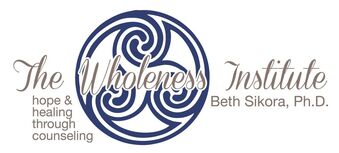Have you or a loved one suffered a trauma?
Still having anxiety and flashbacks? It may be PTSD.
|
Feeling afraid during a traumatic event is a normal biological response. Your fight, flight, or freeze mechanism for survival kicks into gear and your actions may not even be conscious decisions on how to get to a safe place. Some people come out of emergent situations with little to no lasting effects, but others who continue to experience symptoms may be feeling the effects of Post Traumatic Stress Disorder, or PTSD.
The traumatic situations can be one of many different types. A car accident, witnessing a loved one almost die or be hurt, being in a war and seeing others hurt, being in a war zone and hearing the bombs near or far explode repeatedly, being a victim of domestic violence or having survived an abusive childhood, surviving cancer and those treatments, a head injury, learning of a threat to a loved one, and being involved in dangerous crime or accident scenes or investigating them all are examples of just how many different ways PTSD can occur. Have you or your loved one been dealing with any of the below for a month or longer? If the symptoms are occurring within the first month after the incident it can still be a problem needing professional help, but it is called acute stress disorder.
|
“Trauma is personal. It does not disappear if it is not validated. When it is ignored or invalidated the silent screams continue internally heard only by the one held captive. When someone enters the pain and hears the screams healing can begin.” Did you know?
Music Therapy can help those with PTSD. There have been a number of studies done that show that music therapy as a therapeutic intervention facilitates healing by reducing symptoms and improving functioning among individuals with trauma exposure and PTSD. Would you like more information? Click here! |
source credit to: www.medineplus.gov
|
Post-Cancer DiagnosisDoctors are now increasingly aware that PTSD involves people who have been exposed to stressors related to cancer and its treatments. The cancer diagnosis is given, the treatment plan is defined and followed, and a period of recovery has been achieved, yet the brain is stuck. Previously innocent moments may now cause a host of symptoms ranging from bad memories to a quickening of the pulse and breathlessness. These new triggers can be from something as small as a song, a smell, or even a tiny package of graham crackers or saltines (as are frequently handed out in labs/chemo rooms in hospitals). The symptoms highlighted above may be present, if that is the case, qualified mental health professionals are able to not only listen and help you process your emotions, but they are able to guide you through a process of healing. For more information about how Cancer can affect the brain, click here.
|
Childhood TraumaIf, as a child, you or a loved one experienced a disturbing event or series of events you may have a chronic form of PTSD today. During childhood symptoms are often nightmares about it, sleep difficulty, prolonged bed wetting, or separation anxiety you may have been experiencing PTSD. Adolescents with PTSD may display self-destructive behavior and guilt. Adults who have had childhood trauma and subsequent PTSD can be significantly more likely to have anxiety and depression as well as more suicidal thoughts and suicide attempts during their lifetime than those who have experienced no trauma. Additionally, there are clinical findings showing there may be physical changes in the brains of people who have had childhood trauma and PTSD. Because I specialize in TBI, I stay on top of current research on this topic and there is help, and hope, available. For more information on TBI, click here.
|
PTSD Articles
As a way to help support clients, Dr. Sikora has written a number of articles throughout the years and still publishes a blog currently. She is an avid researcher and shares her expertise in an insightful way to provide new data and/or a different perspective to help others move forward. Below are a some articles she's written related to PTSD.

